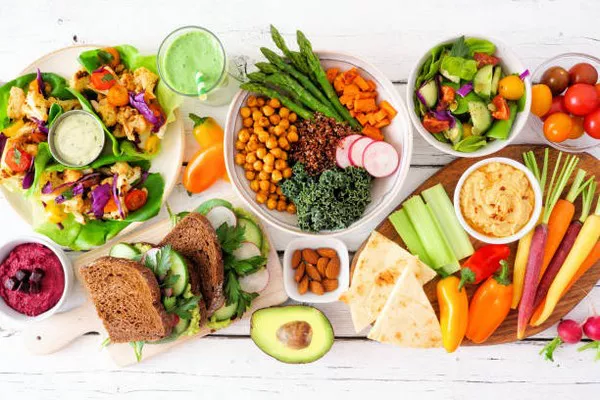For many, the pursuit of a healthy body involves managing weight. While most discussions revolve around weight loss, some individuals face the challenge of gaining weight safely and effectively. Vitamins, often associated with overall health and well-being, play a significant role in this endeavor. In this comprehensive guide, we explore the most effective vitamins to support healthy weight gain, how they work, and the importance of a balanced approach.
Understanding Healthy Weight Gain
Before delving into the world of vitamins, it’s essential to understand the fundamentals of healthy weight gain. Gaining weight doesn’t mean indulging in empty calories or unhealthy eating habits. Instead, it should focus on increasing muscle mass and promoting overall well-being.
Healthy weight gain can be beneficial for various reasons, including:
1. Enhanced Physical Performance: Gaining muscle mass can improve physical strength and endurance.
2. Increased Energy Levels: Adequate weight gain can boost energy levels and reduce fatigue.
3. Better Immune Function: A well-nourished body is better equipped to fight off infections and illnesses.
SEE ALSO: 5 Vitamins that Bolster Your Immune System
4. Improved Self-Esteem: Achieving a healthy weight can enhance self-confidence and body image.
5. Recovery from Illness: Weight gain is often recommended for individuals recovering from illnesses or surgery.
The Role of Vitamins in Healthy Weight Gain
Vitamins play a vital role in healthy weight gain by supporting various aspects of your overall health and metabolism. While they are not direct sources of calories like proteins, carbohydrates, and fats, they are essential for the proper functioning of your body, which is crucial when you’re aiming for sustainable weight gain. Here’s a closer look at the role of specific vitamins in the process of healthy weight gain:
1. Vitamin D
Often referred to as the “sunshine vitamin,” vitamin D plays a critical role in calcium absorption, which is essential for bone health. It also influences muscle function, making it crucial for individuals looking to build lean muscle mass through strength training and exercise. Vitamin D deficiency can lead to muscle weakness and hinder weight gain efforts.
SEE ALSO: 8 Kinds of Food Rich in Vitamin D (Plus Other Things to Note)
2. Vitamin B Complex
The B vitamins, including B1 (thiamine), B2 (riboflavin), B3 (niacin), B5 (pantothenic acid), B6 (pyridoxine), B7 (biotin), B9 (folate), and B12 (cobalamin), are integral to energy metabolism. They help convert the food you eat into energy, which is essential when you’re increasing your calorie intake to support weight gain. Additionally, some B vitamins, like B6 and B12, play roles in protein synthesis and muscle growth.
3. Vitamin C
While not directly involved in weight gain, vitamin C is essential for overall health. It acts as an antioxidant, protecting your cells from oxidative stress. Maintaining good health is crucial when you’re trying to gain weight, as illness or infections can hinder your progress.
4. Vitamin E
Vitamin E is another antioxidant that helps protect your cells from damage. It may indirectly support weight gain by ensuring your body functions optimally during the process. Additionally, vitamin E may aid in muscle recovery after intense workouts, which is essential for building lean muscle mass.
5. Vitamin K
Vitamin K is vital for blood clotting and bone health. While not directly associated with weight gain, it ensures your body is in good health, allowing you to engage in strength training and physical activities necessary for muscle development.
SEE ALSO: 10 Foods Contain Vitamin K for Your Bodily Functions
The Importance of a Balanced Diet in Healthy Weight Gain
While vitamins can play a supportive role in healthy weight gain, they are not a magic solution. It’s crucial to remember that weight gain should be achieved through a balanced diet that includes an adequate intake of macronutrients (proteins, carbohydrates, and fats) and micronutrients (vitamins and minerals).
Here are some dietary strategies to support healthy weight gain:
1. Adequate Caloric Intake
To gain weight, you must consume more calories than your body burns in a day. Calculate your daily caloric needs based on factors like age, gender, activity level, and weight gain goals. Aim for a modest caloric surplus of 250 to 500 calories per day, which can lead to steady, sustainable weight gain.
2. Protein
Protein is the building block of muscle tissue. It’s crucial for muscle growth and repair. Include sources of high-quality protein in your diet, such as lean meats (chicken, turkey, lean beef), fish, eggs, dairy products (if tolerated), legumes (beans, lentils), tofu, and tempeh. Aim for at least 1.2 to 2.2 grams of protein per kilogram of body weight per day.
SEE ALSO: All About How Much Protein Do You Need to Gain Weight
3. Carbohydrates
Complex carbohydrates provide a steady source of energy, which is essential for workouts and daily activities. Incorporate whole grains like brown rice, quinoa, oats, and whole wheat bread. Include starchy vegetables like sweet potatoes and legumes. Carbohydrates should make up a significant portion of your daily caloric intake.
4. Healthy Fats
Healthy fats are calorie-dense and can contribute to a caloric surplus. Opt for sources of unsaturated fats, including avocados, nuts (almonds, walnuts), seeds (chia, flaxseed), olive oil, and fatty fish (salmon, mackerel). These fats provide essential fatty acids and support overall health.
5. Fiber-Rich Foods
While you’re increasing calorie intake, don’t neglect fiber. Fiber supports digestive health and can help regulate your appetite. Incorporate fiber-rich foods like fruits, vegetables, whole grains, and legumes into your diet.
SEE ALSO: Everything About Fiber and Protein Combination in Your Diet
6. Frequent Meals and Snacks
Instead of relying solely on three large meals, consider eating smaller, balanced meals and snacks throughout the day. This approach can help you meet your caloric goals without feeling overly full.
7. Hydration
Staying hydrated is crucial for overall health and can support your exercise regimen. Aim to drink plenty of water throughout the day. You can also include hydrating foods like water-rich fruits and vegetables.
8. Micronutrients
While macronutrients (proteins, carbohydrates, fats) are critical for weight gain, don’t overlook micronutrients. Vitamins and minerals are essential for various bodily functions. Ensure you get a variety of nutrient-dense foods in your diet to cover your micronutrient needs. Consider a daily multivitamin or consult a healthcare professional to address specific deficiencies.
9. Nutrient Timing
Timing your meals and snacks around workouts can optimize muscle growth and recovery. Consuming a balanced meal or snack that includes protein and carbohydrates within an hour or two after exercise can be particularly beneficial.
Potential Risks and Considerations of Healthy Weight Gain
As you embark on your journey toward healthy weight gain, it’s crucial to be aware of potential risks and considerations. While the goal is to increase your body weight in a sustainable and healthful manner, there are pitfalls and challenges to navigate:
1. Unhealthy Weight Gain
One of the primary concerns is the risk of unhealthy weight gain. Gaining weight too quickly or by consuming excessive calories from processed, high-sugar, or high-fat foods can lead to an increase in body fat rather than muscle mass. This can contribute to health problems such as insulin resistance, heart disease, and metabolic disorders.
2. Nutrient Imbalances
Focusing solely on increasing calorie intake may lead to nutrient imbalances. A diet that lacks diversity can result in deficiencies in essential vitamins and minerals. These deficiencies can impact your overall health and hinder your weight gain progress.
3. Digestive Issues
Rapidly increasing your calorie intake can sometimes overwhelm your digestive system, leading to discomfort, bloating, and even digestive disorders like irritable bowel syndrome (IBS). Gradual changes and a balanced diet can help mitigate these issues.
4. Medical Conditions
It’s essential to consider any underlying medical conditions that might impact your ability to gain weight or require dietary modifications. Conditions like diabetes, celiac disease, and food allergies may necessitate specialized dietary plans.
5. Monitoring and Adjusting
Gaining weight in a healthy manner requires diligent monitoring and adjustments. You’ll need to regularly assess your progress, making sure you’re gaining muscle rather than fat. This may involve keeping a food diary, tracking your workouts, and consulting with a healthcare provider or dietitian.
6. Psychological Impact
Weight gain, like weight loss, can have a psychological impact. It’s essential to maintain a positive body image and self-esteem throughout the process. Seek support from friends, family, or a mental health professional if needed.
7. Sustainable Lifestyle
Healthy weight gain isn’t just about the journey; it’s about creating a sustainable lifestyle. This includes establishing healthy eating habits, incorporating regular exercise, and managing stress. Rapid weight gain followed by a return to previous habits can lead to yo-yo dieting and adverse health effects.
Conclusion
Achieving healthy weight gain involves a holistic approach that includes a balanced diet and, where necessary, vitamin supplementation. Vitamins like D, B complex, C, E, and K play vital roles in supporting this process by promoting overall health and muscle development. However, vitamins alone are not a quick fix; they should be part of a comprehensive plan that emphasizes nutrient-dense foods and exercise. Always prioritize your health and well-being on your weight gain journey.
[inline_related_posts title=”Related Topics” title_align=”left” style=”list” number=”3″ align=”none” ids=”2262,2067,2064″ by=”categories” orderby=”rand” order=”DESC” hide_thumb=”no” thumb_right=”no” views=”no” date=”yes” grid_columns=”1″ post_type=”” tax=””]


































